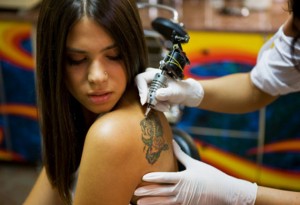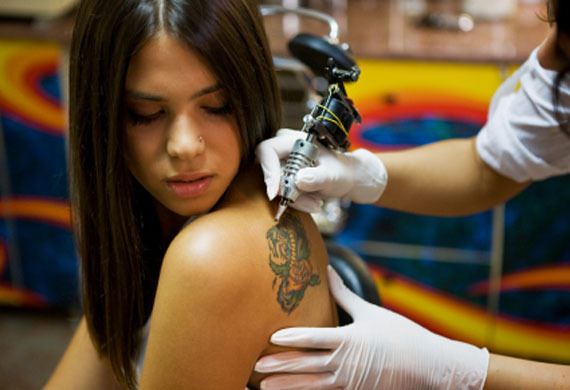 The Wall Street Journal recently conducted a survey that asked young adults if they or somebody they lived with had a tattoo. From only 21% in 1999, the number of tattooed individuals today have increased to 40%. Despite it being a raging trend, especially among millennials, the cost of getting “inked” hasn’t become any friendlier, forcing many to resort to at-home tattooing. Unfortunately, this budget workaround has its dangers.
The Wall Street Journal recently conducted a survey that asked young adults if they or somebody they lived with had a tattoo. From only 21% in 1999, the number of tattooed individuals today have increased to 40%. Despite it being a raging trend, especially among millennials, the cost of getting “inked” hasn’t become any friendlier, forcing many to resort to at-home tattooing. Unfortunately, this budget workaround has its dangers.
An authority and school on tattoo artistry, The Academy of Responsible Tattooing (ART), has just released a statement that it strongly advises against at-home tattooing, as undergoing this procedure in unsanitary environments with improperly trained tattoo “artists” is a health hazard for potentially life-threatening, infections, scarring, and blood-borne diseases such as HIV and Hepatitis C.
According to a research project by the American Association for the Study of Liver Diseases that examined 3,871 people, there was a significant relationship between having tattoos and having hepatitis C. ART explains that cross-contamination is a major health risk among untrained tattooers as it only takes one needle stick to spread disease.
An ART instructor, Israel Sanchez said that if it’s not a bloodborne disease, if a tattooer is not strict with sterilization and sanitation, people can still get a skin infection which is not only painful but can cause unsightly scarring and can distort the tattoo. Fixing these complications will end up costing 10 times more than getting a tattoo at a proper shop, not to mention this permanent body art will look professionally done.
Because more of today’s young adults are getting inked or are potentially engaging in dangerous behavior that could put them at risk of acquiring a sexually transmitted disease such as Hepatitis C, a $1.3 million grant was recently awarded to a professor at the University of New Mexico to fund a study that will explore the increased prevalence of hepatitis C in young adults.

